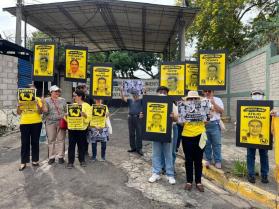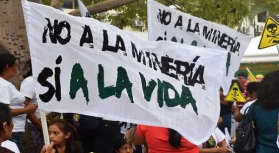Pan-American Health Organization Praises El Salvador’s Healthcare Reform
The Pan-American Health Organization (Organización Pan-Americana de Salud, or OPS) recently recognized El Salvador’s advances in guaranteeing free, quality healthcare for all under the 2010 healthcare reform. The reform, initiated by the nation’s first leftist government (2009-2014) and continued under the present administration of President Sánchez Cerén, seeks to ensure the right to care mandated by the Constitution.
“El Salvador has been applying the principles of universal coverage and universal access to healthcare since the implementation of its healthcare reform, and the advances in access, coverage and equity are evident, notable,” said OPS Director Carissa Etienne, who visited the country on October 18th for a regional healthcare summit.
The reform is being implemented by the Ministry of Health, which provides care for some 80% of the population, including those without formal employment, who receive care through the Social Security system, and those who cannot afford prohibitively expensive private care.
Hallmarks of the healthcare reform include the establishment of rural health clinics, staffed by Community Health Teams (ECOs), to serve El Salvador’s most isolated and historically marginalized communities with a focus on preventative care. Between 2010-2014, the Funes administration installed over 500 ECOs, and the Sánchez Cerén administration has already opened 43 more. The reform also eliminated the so-called “voluntary” donations previously required of patients to seek public care, and created an integrated national network connecting clinics and hospitals across the country. “The advance that the country has achieved in the last five years, especially in coverage to populations that were excluded from health care, is very important. We observed that there is a 40% increase in access to doctors’ offices,” the OPS Director reported. With increased prenatal care, hospital births have also increased by 30%, and maternal mortality has dropped over 75% from 2006 levels, thereby meeting one of the United Nations’ Millennium development goals ahead of schedule.
“Primary care has been strengthened with the integrated health services networks and community health teams in the municipalities most in need, providing qualified healthcare personnel,” affirmed Etienne. “My sincerest congratulations for the implementation of quality [care] and access in the healthcare reform, improving access to healthcare and universal healthcare coverage with positive results, it’s very impressive.”
The 2015 budget proposal includes a $29 million increase for the Ministry of Health to continue expanding coverage and increasing the quality of care. The budget, however, is currently facing rigid opposition from the right-wing opposition in the National Legislative Assembly, which is demanding austerity.
For reflections and reports on CISPES’ 2012 Medical Brigade accompanying the ECOs in El Salvador’s northern Chalatenango province, click here, here and here.

 "I am a CISPES supporter because continuing to fight for social justice and a more people-centered country means continuing the dream and sacrifice of thousands of my fellow Salvadorans who died for that vision.” - Padre Carlos, New York City
"I am a CISPES supporter because continuing to fight for social justice and a more people-centered country means continuing the dream and sacrifice of thousands of my fellow Salvadorans who died for that vision.” - Padre Carlos, New York City

